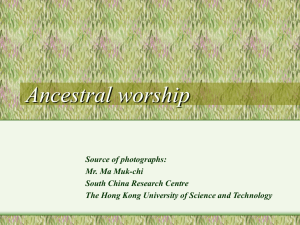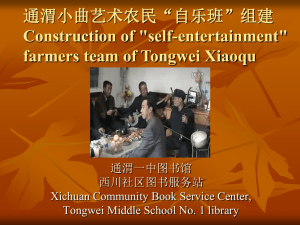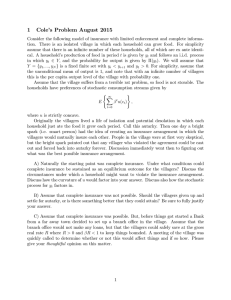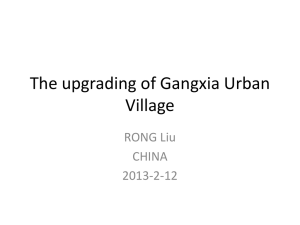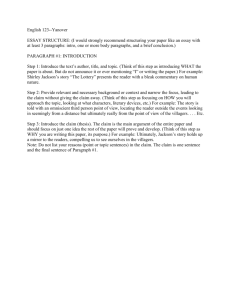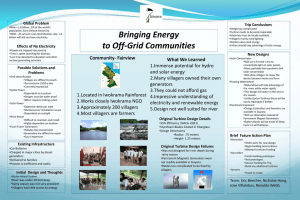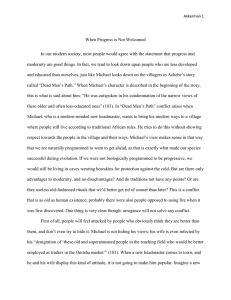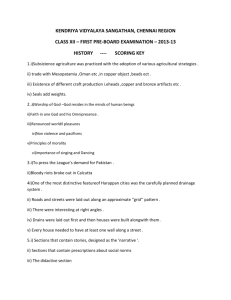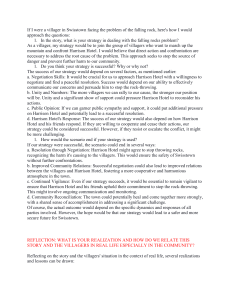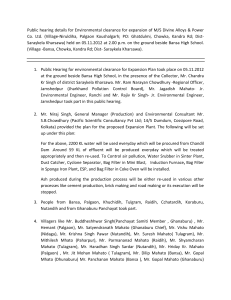Personal Statement
advertisement
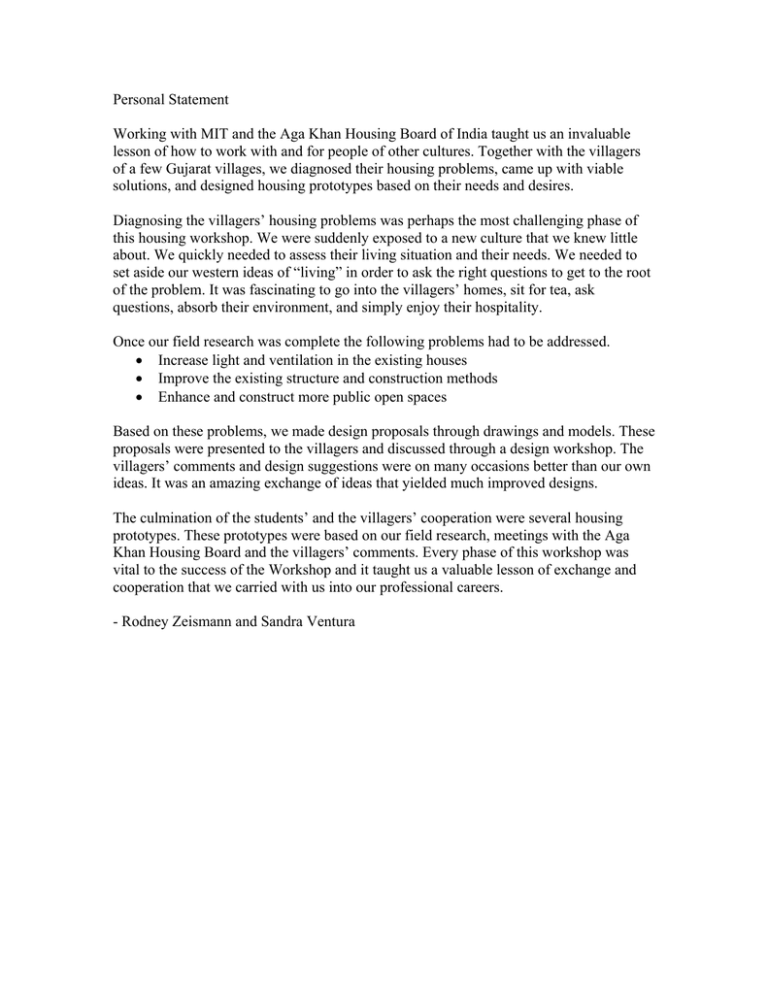
Personal Statement Working with MIT and the Aga Khan Housing Board of India taught us an invaluable lesson of how to work with and for people of other cultures. Together with the villagers of a few Gujarat villages, we diagnosed their housing problems, came up with viable solutions, and designed housing prototypes based on their needs and desires. Diagnosing the villagers’ housing problems was perhaps the most challenging phase of this housing workshop. We were suddenly exposed to a new culture that we knew little about. We quickly needed to assess their living situation and their needs. We needed to set aside our western ideas of “living” in order to ask the right questions to get to the root of the problem. It was fascinating to go into the villagers’ homes, sit for tea, ask questions, absorb their environment, and simply enjoy their hospitality. Once our field research was complete the following problems had to be addressed. • Increase light and ventilation in the existing houses • Improve the existing structure and construction methods • Enhance and construct more public open spaces Based on these problems, we made design proposals through drawings and models. These proposals were presented to the villagers and discussed through a design workshop. The villagers’ comments and design suggestions were on many occasions better than our own ideas. It was an amazing exchange of ideas that yielded much improved designs. The culmination of the students’ and the villagers’ cooperation were several housing prototypes. These prototypes were based on our field research, meetings with the Aga Khan Housing Board and the villagers’ comments. Every phase of this workshop was vital to the success of the Workshop and it taught us a valuable lesson of exchange and cooperation that we carried with us into our professional careers. - Rodney Zeismann and Sandra Ventura
